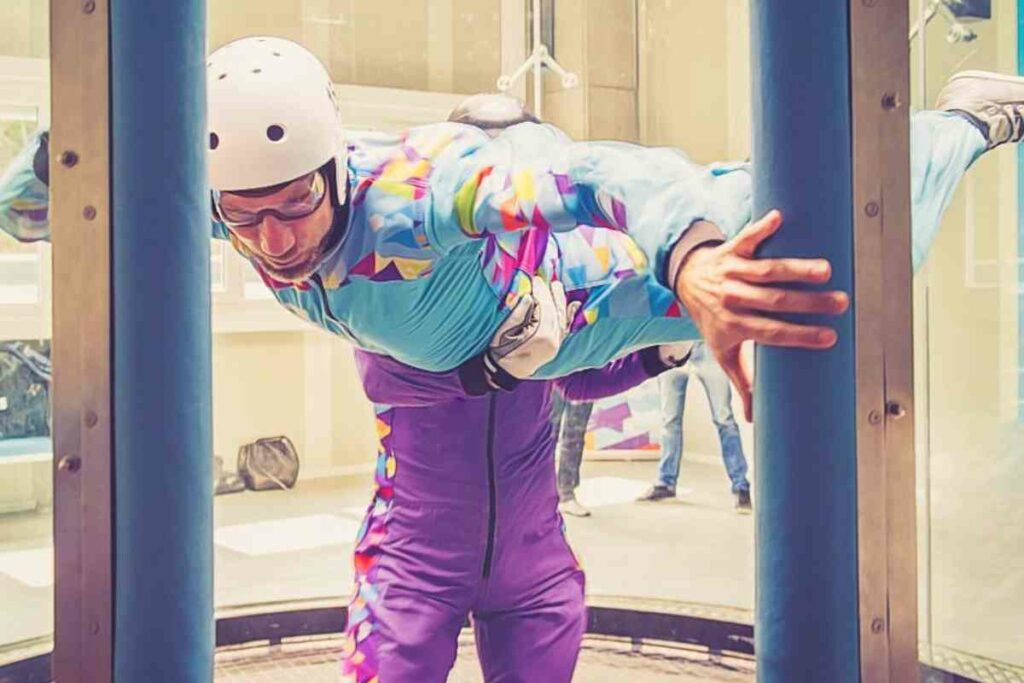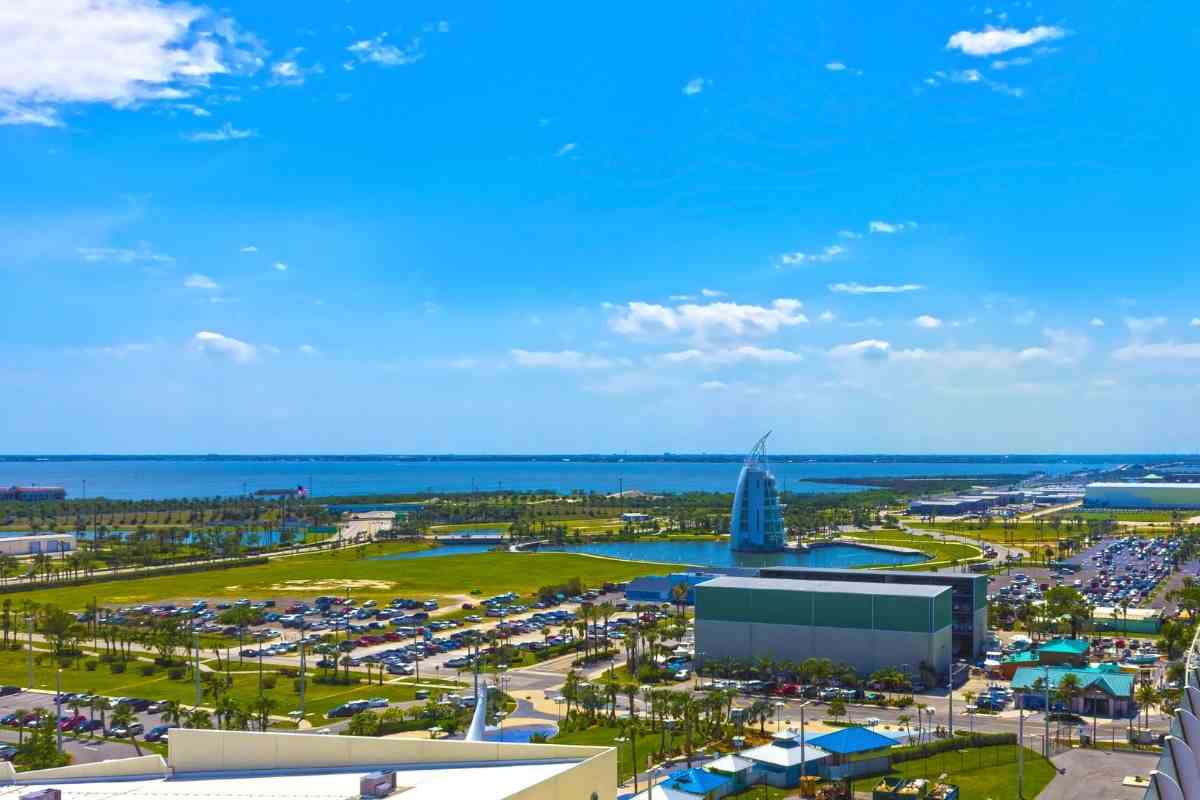If you’re pregnant and considering skydiving, you’ve undoubtedly been wondering, can you indoor skydive if you’re pregnant?
The answer is no. This is to be totally safe and avoid placental abruption, which is when the placenta disconnects from the uterus prematurely.
This can happen if you’re too active in any way. You want to wait at least 6 weeks after giving birth to indoor skydive without extra risk!
Can You Indoor Skydive If You’re Pregnant?
Indoor skydiving isn’t the roughest activity, so it may seem okay for someone who’s pregnant.
Unfortunately, since you’ll be bending your body around, trying to balance, etc. placental abruption becomes a risk.
Read before you go – Can You Indoor Skydive If You Have a Medical Condition?
This is when the placenta detaches from the uterine wall prematurely.
There are a few ways that this can be quite dangerous for both baby and mother:
- Insignificant oxygen is as serious as it sounds, and with placenta abruption, it’s a real risk. It can seriously affect a baby’s development, damaging or stunting the heart, lungs, kidneys, and other vital organs. It can make it difficult for the baby’s survival, and intensive care will be needed.
- In the most tragic of instances, placenta abruption can result in stillbirth. This can be from one or more of the other risks listed here (for example, lack of oxygen or nutrition). Fortunately, this is very uncommon, so don’t worry unnecessarily. Just make sure not to take part in activities where – when pregnant – it’s a risk!
- When the placenta separates from the uterine wall, it sometimes triggers premature birth. This increases birth risks and makes things harder for both the mother and the baby. There are possible birth defects, illnesses, etc. that the baby may have to deal with. Luckily, plenty of prematurely born babies go on to live long, healthy, lives. Still, in any way you can, it’s best to make sure that your baby makes it full-term. This will help them to be born healthier!
- When the placenta detaches or begins to detach from the uterine wall, there’s less access to nutrients for the baby. As a result, the baby will not be able to grow as it should. Like lack of oxygen, this can affect not only your baby’s size but also the health of their organs, such as their brain, heart, kidneys, etc. It’s definitely to be avoided!
Basically, you’ll need to wait for a little while after birth to give indoor skydiving a try (or get back to it). Time will fly, never fear!
How Soon After Birth Can You Skydive?
If you aren’t able to indoor skydive while pregnant, then how long after birth can you skydive?
You can indoor skydive again after 6 weeks so in just about a month and a half! What if you’re feeling up to indoor skydiving before then?
It’s still highly inadvisable – activities like jumping, twisting, turning, etc. can make prolapse a risk.
This is extremely uncomfortable, as it involves pelvic organs beginning to protrude unnaturally.
As you can imagine, you definitely don’t want this to happen – along with being quite painful, it increases the risk of infection, internal bleeding, etc. Definitely not worth indoor skydiving, unfortunately – at least, not just yet.
Take a breather for 6 weeks or so and give your hardworking body (and self) a break.
Also read
How Old Do You Have to Be to Skydive?

Once you’ve had your kiddo, or if you already have kids, when can they join you in indoor skydiving? As a matter of fact, indoor skydiving is kid-friendly.
Your kid will simply need to be able to walk and reason enough to learn how to balance and avoid injury. Most indoor skydiving places require that children are aged 3-4+. At this point, you and your kiddo can skydive together!
Feel like exploring further? Discover more insights and broaden your understanding with our Indoor Skydiving Beginners Guide!
Conclusion
As you can see, while indoor skydiving has significantly fewer risks than skydiving outdoors, you still don’t want to do it while you’re pregnant.
You become at risk for not only placenta abruption but also prolapse. Instead of exposing you and your baby to these possibilities, wait until 6 weeks after your pregnancy to get started again… safely. Once again, give your hardworking body (and self) a break!







